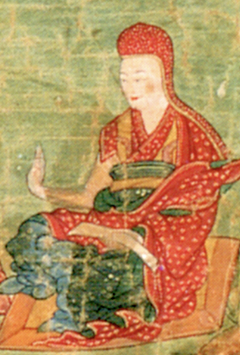Méthodes de récitation
Méthodes de récitation
Accès restreint
English (4) | Español (1) | Français (2) | Italiano (1) | བོད་ཡིག (4)

Figure from a painting of Situ Paṇchen
Avec l’aimable autorisation d’Himalayan Art Resources
Le bouddhisme vajrayāna impose des restrictions à la lecture et à la pratique de certains textes, qui sont destinés uniquement à ceux qui en ont reçu les transmisssions de pouvoir, transmissions de lecture et instructions appropriées.
Si vous doutez d’avoir les autorisations nécessaires à la lecture ou à la pratique d’un texte particulier, veuillez consulter un détenteur de lignée qualifié.